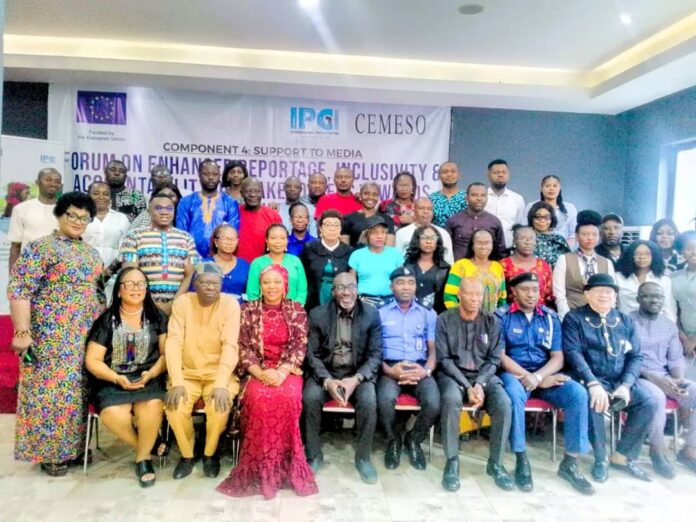Journalists in Anambra State have been adequately trained on enhanced reporting, inclusivity and accountability of stakeholders towards Anambra Poll of November 8, 2025.
Held at BON Hotel Awka, the two-day workshop trained select journalists from print, online and broadcast media in the state, and featured interactive session with critical stakeholders on Anambra Governorship Election and the Dynamics of Anambra Election: Media safety, Civic Voter Education (CVE) and Election Coverage.
The event was put together by the European Union through its European Union Support to Democratic Governance in Nigeria (EU-SDGN II Programme) and was delivered under Component 4—Support to Media—implemented by the International Press Centre (IPC) and the Centre for Media and Society (CEMESO).
Addressing the gathering, the Executive Director, Centre for Media and Society (CEMESO), Dr Akin Akingbulu, said the Anambra Off-cycle election is complex and sensitive with heightened political interference, concentrated security concerns, and the lingering challenge of voter apathy.
He described the gathering as a convergence of purpose and collective resolve to strengthen the pillars of truth, accountability, and public trust.
According to him, the media’s responsibility transcends from mere reportage to becoming an act of safeguarding democracy itself.
“In safeguarding our democracy, You, the journalists and media professionals in this room, are the bridge between the process and the people. The narratives you shape, the facts you choose to verify, and the voices you amplify will define the transparency, integrity, and credibility of this election.
“Our goal is to strengthen Nigerian democracy by empowering the media to deliver fair, accurate, inclusive, and sustained coverage of the electoral process and broader democratic governance.
“Our collective mission for Anambra 2025 rests on several interlinked pillars that define responsible media practice: combating information disorder, sustaining civic and voter education, promoting inclusion, and ensuring media safety.
“The first pillar—combating information disorder—requires us to confront the pervasive threats of misinformation, disinformation, and malinformation. The second—sustaining civic and voter education—calls us to maintain continuous, issue-based messaging that counters such challenges as voter apathy, vote-buying, and electoral violence.
“The third pillar—designing for inclusion—urges us to amplify the voices of women, youth, and Persons with Disabilities (PWDs), ensuring their perspectives are not merely represented but prioritized. The fourth—ensuring media safety—underscores the need for robust protection and rapid response mechanisms for journalists working in potentially volatile conditions,” he said.
The CEMESO Boss noted that commitment to civic and voter education must be ongoing and intentional. “It is not enough for citizens to be informed; they must be equipped to think critically and act responsibly.
“We must therefore embrace a fundamental truth of our time: misinformation travels faster than truth, and fact-checking is now a must-do all the time. Every newsroom must treat sensational claims with disciplined skepticism, verify context rigorously, and consistently reinforce public confidence in electoral institutions,” Dr Akingbulu concluded.
On his part, the Executive Director, International Press Centre (IPC), Mr Lanre Arogundade urged stakeholders to take their responsibilities seriously, avoid bias, rise above partisanship and be ready to be accountable for their actions or inactions with respect to the Anambra governorship election.
“Today’s assembly has been deliberately tagged a stakeholders’ forum because as stakeholders in the electoral process, we are supposed to have vested interest in positive outcomes of electoral processes and elections.
“Naturally, we are also interested in how the stakeholders here (INEC, the Police, the Civil Defence Corps and the NOA), will provide the enabling environment for journalists to effectively cover and report the whole gamut of the electoral processes in line with the expectations of the Nigerian Media Code of Election Coverage as outlined under the Statement of Broad Principles.
“The expected roles include facilitation of access to information, protection of journalists and prompt investigation of any attacks. We consider this pertinent because the goal of Component 4, Support to Media of EU-SDGN II is to strengthen the Media for Fair, Accurate, Ethical and Inclusive Coverage of Electoral Processes in Nigeria and in the process, reinforce the initiatives of the other components of EU-SDGNII entailing support to INEC, the Political Parties, the Youths, Women and Persons with Disability for the purpose of ensuring the delivery of credible elections,” he posited.
Arogundade further identified the six expected results that the Component 4 activities seeks to achieve.
“They are the enhancement of Professionalism of media practitioners, especially women; the strengthening of Media professional capacity to deal with electoral misinformation/disinformation; the enhancement of Media platform’s ability to diversify, deepen the coverage of the electoral process and deliver civic and voter education; the improvement of Media awareness and use of FOI Act for increased accountability; the strengthening of the National Broadcasting Commission (NBC) to perform its mandate; and the improvement of Media engagement in promoting women, youths and marginalized groups in politics.”
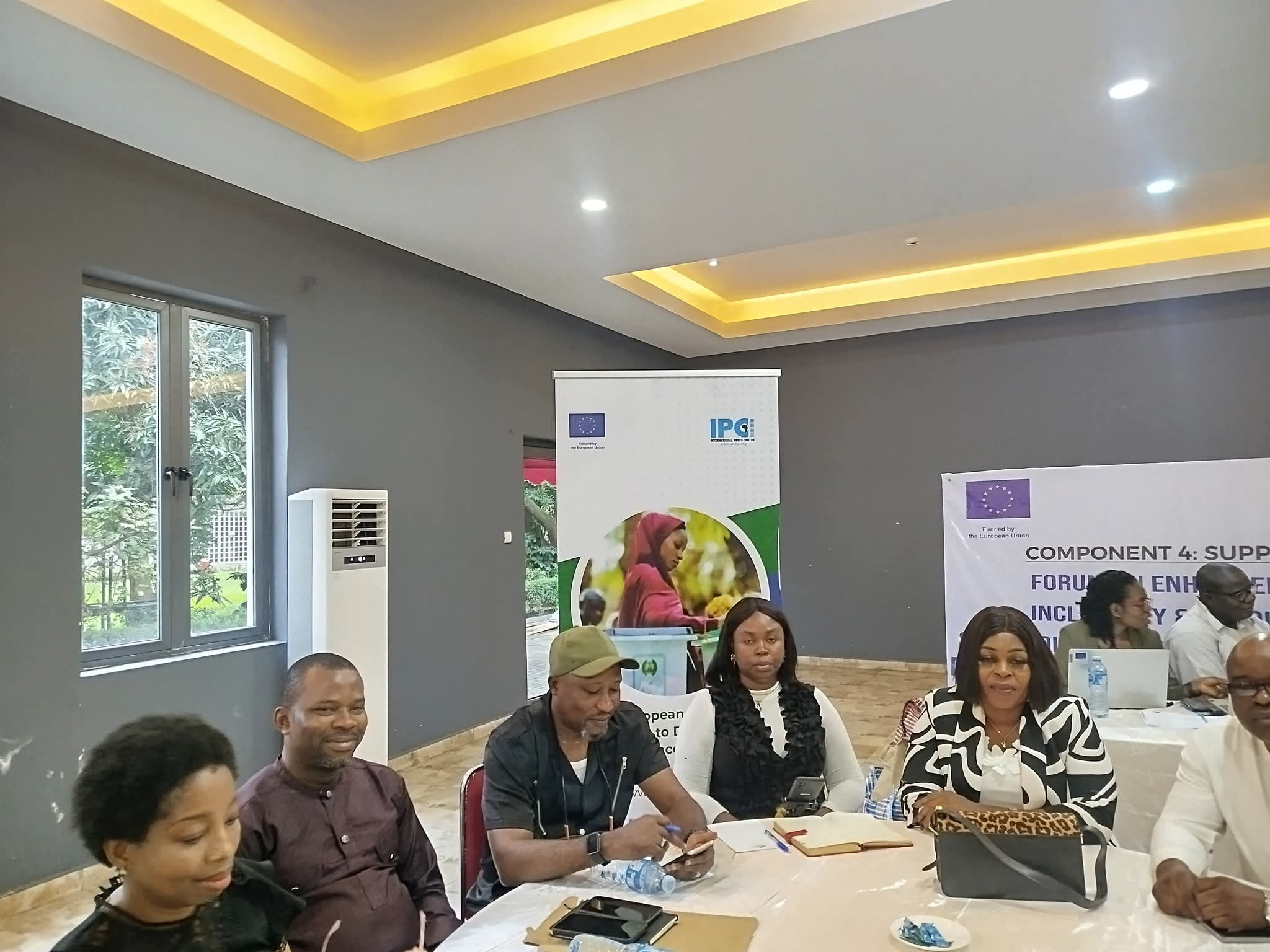
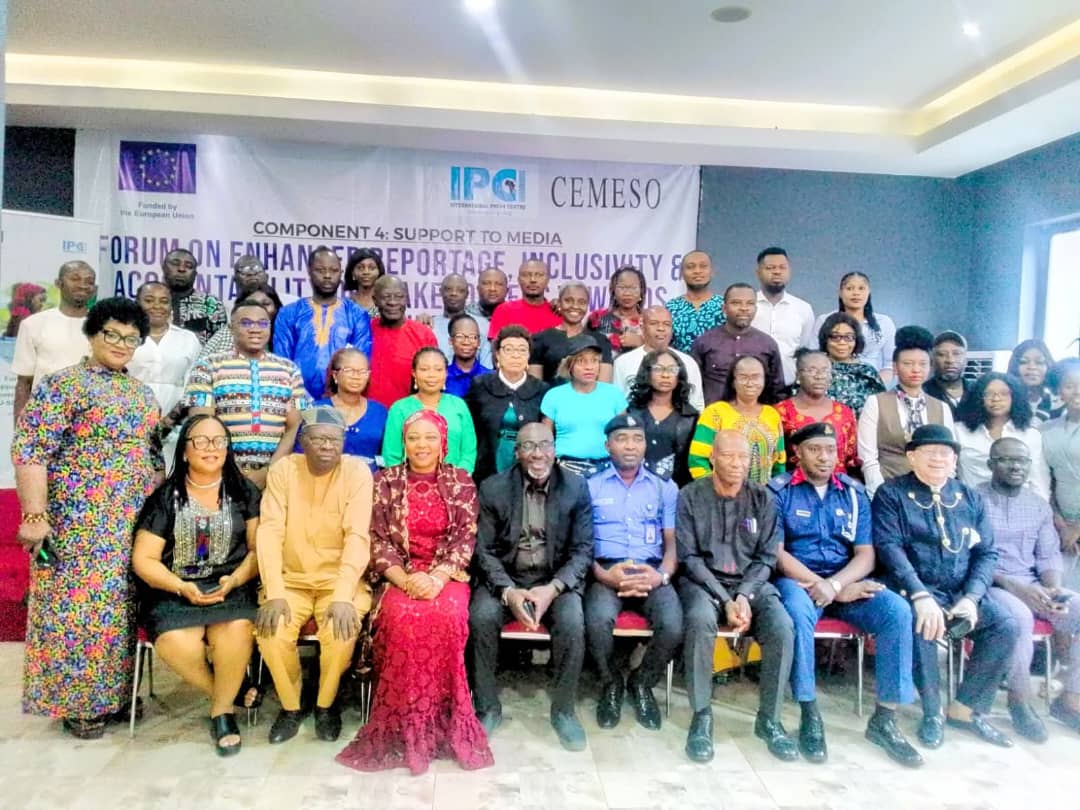
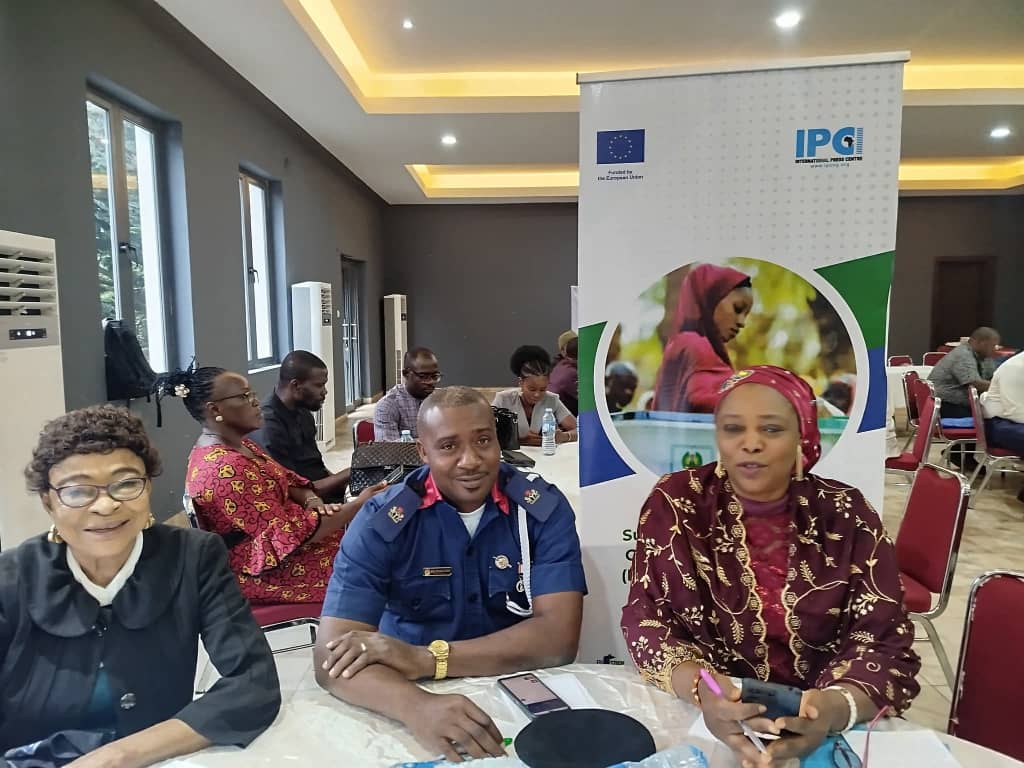
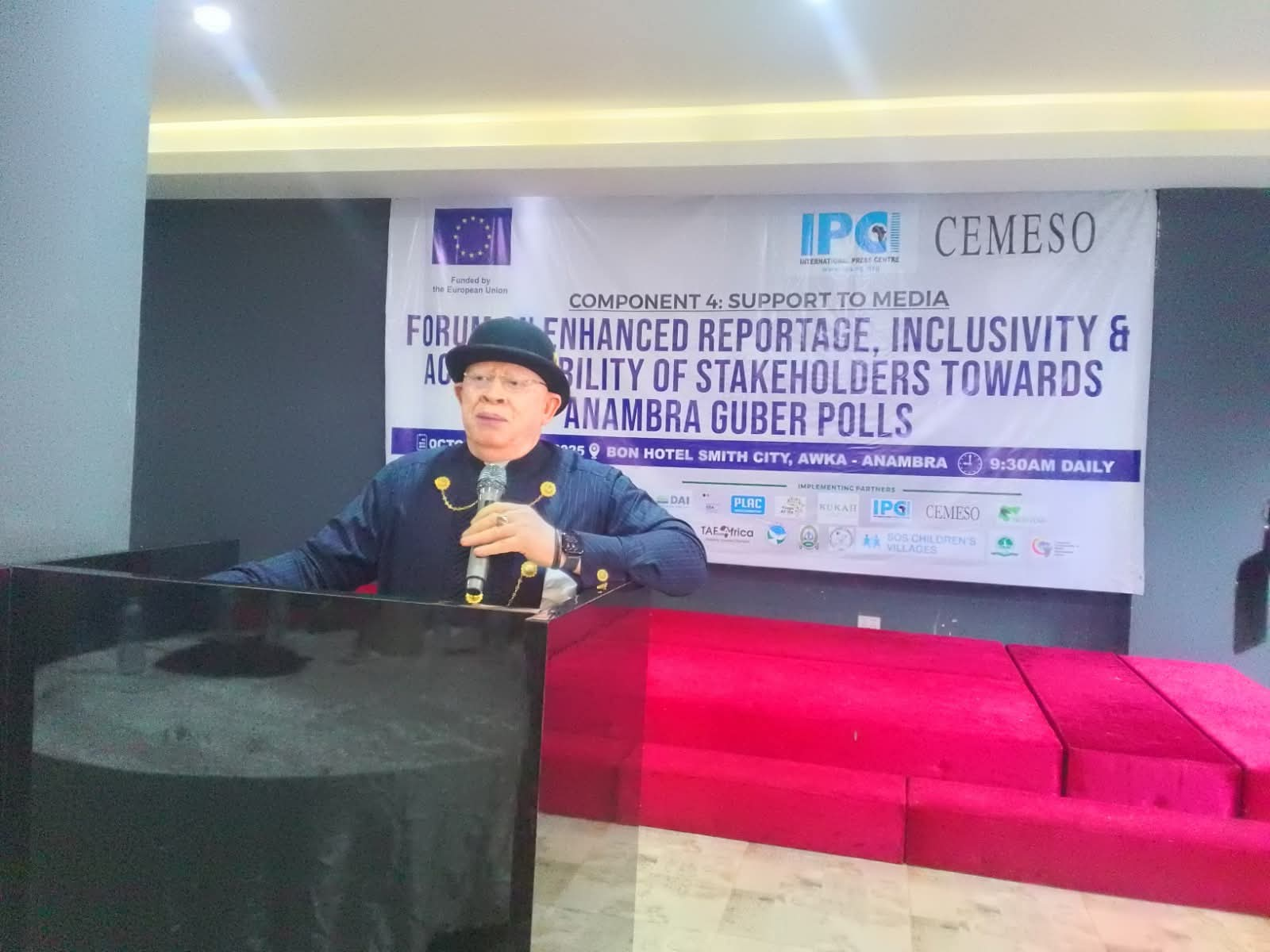
He however called on electoral stakeholders in the state to ensure the creation of the enabling environment for the media to deliver on these results through fruitful collaboration and partnerships that enhance the exchange of positive information.
Stakeholders at the event including Founder/CEO TAF Africa, Jake Epelle; Police Public Relations Officer, Tochukwu Ikenga; Spokesman of the Nigerian Security and Civil Defence Corps (NSCDC), Edwin Okadigbo; State Director, National Orientation Agency, Mr Edozie Ajaegbu; Prof Angela Nwammuo of Mass Communication Dept, Chukwuemeka Odumegwu Ojukwu University Igbariam and her Nnamdi Azikiwe University counterpart, Dr Njide Ezeonyejiaku made useful presentations geared towards enhancing credible poll come November 8, 2025.
Issues discussed at the event were Embedding Ethics, Professionalism, Inclusion and Issue-Focused Reporting Before and After The Anambra Governorship Election (print and online journalists) and the use of the Nigerian Media Election Code, fact-checking and safety issues in election coverage.
The event later dissolved to breakout session for broadcast and print journalists respectively.###





